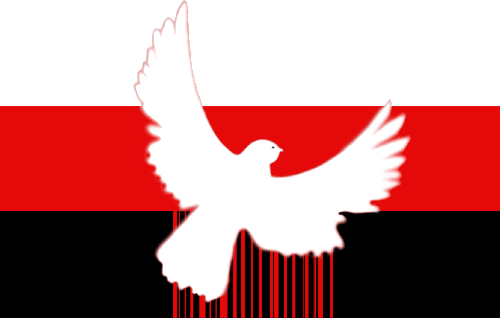I've been thinking about it for awhile, and I've come to the conclusion that the Heroes gene is recessive, as well as a mutation. Now I'm working with admittadly incomplete information. What I remember from high school biology states that there are two types of genes dominant and recessive. If you have any combination with the dominant gene you will have the dominant trait, and only with a combination of two recessive genes will you have a recessive trait.
We can use an H to represent the dominant heroes gene (which doesn't allow for powers) and an h to represent the recessive heroes gene (which does allow for powers) for ease of reference in our discussion of genetics.
Let's take two parents with dominate genes HH and HH, all of their children will have the HH combination of genes and be completely normal (or at least won't have superpowers). If we have one parent with one heroes recessive gene as in HH and Hh, they will have children with either HH combinations or Hh, 50% probability for both. Again none of these children will have powers.
If both parents have the Hh combination their children will have a 25% probability of having an HH child, a 50% chance of having an Hh child, and a 25% chance of having an hh child, so only 1 out of 4 chances of having a kid with powers. This may be the combination we see in Mohinder's family where one child had powers and the other does not.
What happens when a person with powers (hh) has a child with someone with only dominant genes (HH), all their kids will have the Hh combination and therefore no powers. If however someone with a power (hh) has kids with someone with an Hh gene pair they have a 50% chance of having no power kids (Hh) and a 50% chance of having kids with powers (hh). This is the possible combination at work in the Petrelli family (if indeed the mother has powers, although I guess it could have been the father).
The most obviously successful combination is that of two people with powers (hh). All of their children will have the gene pair that allows powers. We see this in Micah and Claire where both parents have powers.
Now obviously this is a little simplistic. It may be that powers are a combination of genes (in fact given the diversity of powers it is far more likely), but I thought it may spark discussion, and possible comment from people who are better versed in genetics than I am.
We can use an H to represent the dominant heroes gene (which doesn't allow for powers) and an h to represent the recessive heroes gene (which does allow for powers) for ease of reference in our discussion of genetics.
Let's take two parents with dominate genes HH and HH, all of their children will have the HH combination of genes and be completely normal (or at least won't have superpowers). If we have one parent with one heroes recessive gene as in HH and Hh, they will have children with either HH combinations or Hh, 50% probability for both. Again none of these children will have powers.
If both parents have the Hh combination their children will have a 25% probability of having an HH child, a 50% chance of having an Hh child, and a 25% chance of having an hh child, so only 1 out of 4 chances of having a kid with powers. This may be the combination we see in Mohinder's family where one child had powers and the other does not.
What happens when a person with powers (hh) has a child with someone with only dominant genes (HH), all their kids will have the Hh combination and therefore no powers. If however someone with a power (hh) has kids with someone with an Hh gene pair they have a 50% chance of having no power kids (Hh) and a 50% chance of having kids with powers (hh). This is the possible combination at work in the Petrelli family (if indeed the mother has powers, although I guess it could have been the father).
The most obviously successful combination is that of two people with powers (hh). All of their children will have the gene pair that allows powers. We see this in Micah and Claire where both parents have powers.
Now obviously this is a little simplistic. It may be that powers are a combination of genes (in fact given the diversity of powers it is far more likely), but I thought it may spark discussion, and possible comment from people who are better versed in genetics than I am.


 ]
]
Comment